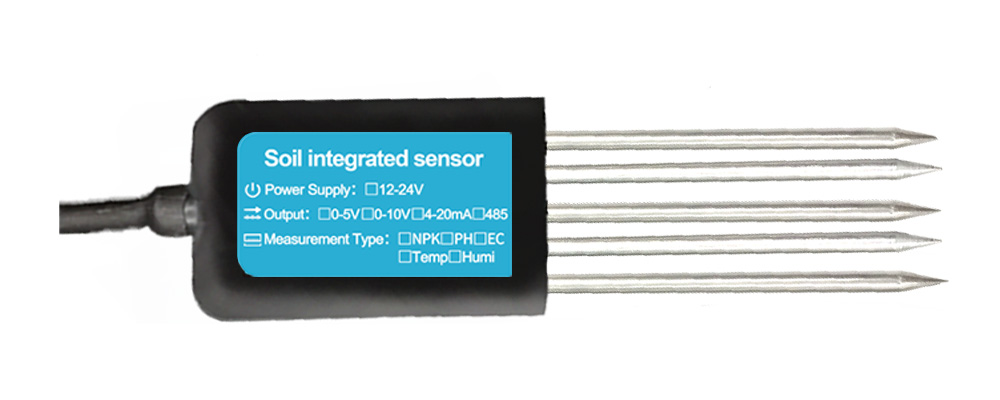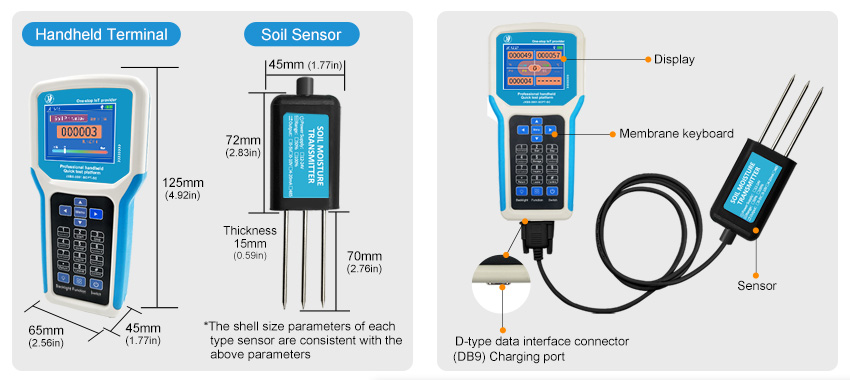Introduction Precision agriculture has revolutionized the way farmers manage their land, enabling them to make data-driven decisions that optimize crop yields while minimizing inputs. One of the key components of precision agriculture is soil sensor technology, which provides valuable insights into soil health and moisture levels. By leveraging soil sensor technology, farmers can make informed decisions about irrigation, fertilization, and crop selection, ultimately leading to more sustainable and efficient farming practices.

Understanding Soil Sensor Technology Soil sensor technology encompasses a range of devices and systems designed to measure various parameters within the soil. These parameters may include moisture content, temperature, pH levels, nutrient levels, and salinity, among others. By gathering data on these critical soil attributes, farmers can gain a comprehensive understanding of their land and make informed decisions to optimize crop production.
Types of Soil Sensors There are several types of soil sensors available to farmers
each with its own unique capabilities and applications. For example, capacitance sensors measure soil moisture levels by assessing the dielectric constant of the soil, while tensiometers measure soil water tension to determine when irrigation is necessary. Additionally, some sensors are equipped to measure nutrient levels, providing farmers with insights into the soil’s fertility and the need for specific fertilizers.
Benefits of Soil Sensor Technology The adoption of soil sensor technology offers numerous benefits to farmers
including improved water management, enhanced crop productivity, and resource conservation. By accurately monitoring soil moisture levels, farmers can optimize irrigation schedules, leading to water savings and reduced energy costs. Furthermore, by understanding the nutrient levels in the soil, farmers can apply fertilizers more precisely, minimizing waste and environmental impact.
Data-Driven Decision Making One of the most significant advantages of soil sensor technology is its ability to facilitate data-driven decision making. By collecting and analyzing data from soil sensors, farmers can gain valuable insights into the unique characteristics of their land. This information empowers them to make informed decisions about crop selection, planting schedules, and the application of inputs such as water, fertilizers, and pesticides. Ultimately, this leads to improved crop yields and more sustainable farming practices.
Challenges and Considerations While soil sensor technology offers tremendous potential for enhancing precision agriculture, there are challenges and considerations that farmers must address when implementing these systems. One such challenge is the cost associated with acquiring and maintaining soil sensor technology. Additionally, farmers may need to invest time in learning how to interpret and act upon the data collected by the sensors. Furthermore, the integration of soil sensor data with other farm management systems, such as irrigation and fertilization equipment, requires careful planning and coordination.
Future Developments and Opportunities As technology continues to advance, the future of soil sensor technology in precision agriculture looks promising. Innovations in sensor design, data analytics, and connectivity are expected to further enhance the capabilities of soil sensors, making them more accessible and user-friendly for farmers. Furthermore, the integration of soil sensor data with other agricultural technologies, such as drones and autonomous machinery, holds great potential for optimizing farm operations and increasing overall efficiency.
Conclusion Soil sensor technology plays a crucial role in the advancement of precision agriculture, providing farmers with valuable insights into soil health and moisture levels. By leveraging soil sensor technology, farmers can make data-driven decisions that optimize crop yields while minimizing inputs, leading to more sustainable and efficient farming practices. While challenges exist, the future of soil sensor technology in precision agriculture is bright, offering opportunities for continued innovation and improvement in agricultural practices.

In conclusion, the adoption of soil sensor technology is a significant step forward for precision agriculture, and its continued development and integration into farming practices will undoubtedly contribute to the sustainability and productivity of agricultural operations around the world.
Unearthing Insights: Leveraging Soil Sensor Technology for Precision Agriculture represents a pivotal shift in the way farmers approach land management, paving the way for more efficient, sustainable, and productive agricultural practices in the years to come.
